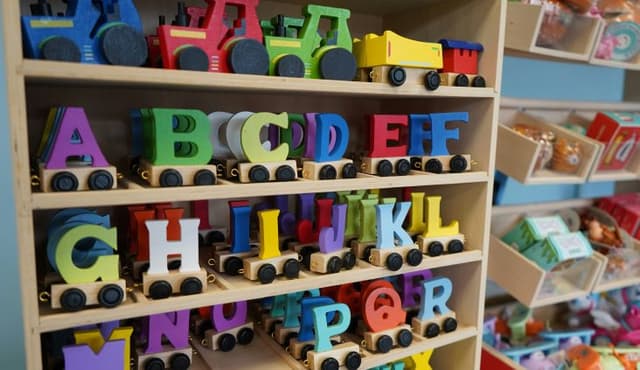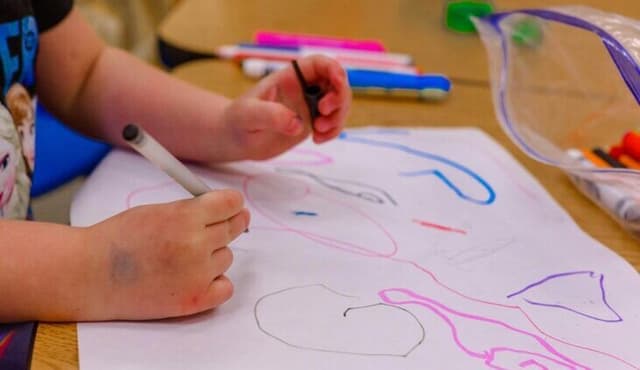General News
Services
OSHC After the Bell calls to the OSHC sector with a podcast of tailored advice and support

Freya Lucas
Aug 17, 2020
Save
When Barbi Clendining’s husband, and business partner James first floated the idea of creating an Australian-focused outside school hours care (OSHC) podcast, she was torn.
While she could see the value in promoting OSHC, a subset of the early childhood education and care (ECEC) sector, about which she is deeply passionate, as someone who is “actually quite shy” the idea was a confronting one.That all changed after the first recording. Having met Brisbane-based Saurubh Malviya at previous training events, and having been captivated by his presentations, knowledge and energy, Barbi agreed to go ahead, and the resulting podcast, OSHC After the Bell has gone from strength-to-strength.
The Sector caught up with both Barbi and Saurubh to learn more about what drew them to the OSHC sector, their future plans for the podcast, and insights they have gathered along the way.
Motivations for joining the sector
Barbi was a OSHC Director for 10+ years and is the Co-Founder of Firefly HR, Australia’s only OSHC-specific recruitment company.
Following a period of time as a primary school teacher, she has been in the sector for over 11 years, and was drawn to the OSHC space not only for the flexibility it afforded in allowing her to provide care for an elderly relative, but also for the way in which OSHC offers the opportunity to build relationships with children that are fostered over many years.
“I love that you get to engage with the same children for their whole time at primary school and watch them grow over time” she said, explaining that working with a team of educators, and getting to know children and families over time is a big draw.Saurubh shared a similar story, with a background in primary teaching which then led to a move to the OSHC sector, and a decade of service management, before exploring the tertiary sector, teaching at Griffith University, delivering courses linked to children’s holistic development such as philosophy, educational psychology, communication and practicum courses.
His passion for working in the OSHC sector has grown to the extent that he is now completing a PhD in OSHC, exploring the social and emotional learning opportunities for children in OSHC.
Podcast aims
We asked Saurubh about his motivations for being involved in producing the podcast, and what outcomes he hoped it would achieve for the sector as a whole.
“For 11 years,” he said, “I was aware of the lack of formal qualifications for OSHC staff and the lack of professionalism which exists among many educators.”
This, he said, “puts pressure” on those who see this field of education as their full time career. “I have visited over 80 services through my consultancy and through this podcast we want to raise awareness of all beautiful things that exist in this area of education.”
For Barbi, the opportunity to create OSHC specific content, and share the benefit of both her and Saurubh’s wisdom with a wider audience was one which was too good to pass up.
“Our backgrounds are different which means we have different points of views and experiences. This I see as a positive as we can genuinely discuss OSHC and from differing perspectives. I learn so much from Saurubh and his knowledge is phenomenal,” she said.
“The aim is to have something that is OSHC specific, that is relatable to educators and to provide information. We are often tacked on to other things such as early childcare and are usually an afterthought. So it’s really nice to have something just for OSHC” Barbi said.
Insights and information
Having the right balance of guests is a priority for OSHC After the Bell.
“We try to get a mixture of guests on the podcast to talk about differing topics related to OSHC such as child protection, the My Time Our Place framework, educational leadership, professionalism, professional development and more,” Barbi explained.
Diving into topics such as psychology and behaviour is also a focus, as well as exploring various theorists and “understanding the why” behind various facets of the sector, and it’s regulatory underpinnings.
“Having more of an understanding of different theories and the why, often helps with understanding why children and educators might have certain behaviours,” Barbi said, adding that she really enjoys getting these types of topics out to OSHC educators and making concepts (such as constructivism or executive functioning) more widely known.
For Saurbbh, the podcast is an opportunity to shine a light on the importance of including children’s voices, and for him to share insights he’s gained through his experiences, both theoretical and practical, as he travels Australia in his consultancy role.
“I also like to share some content from my PhD research,” he said.
Future focus
When it comes to selection of future guests for the show, Barbi said this space is very much determined by the feedback received from listeners.
“We like to listen to what educators want us to talk about and try and do topics on areas they’ve asked us about,” she said, adding that Saurubh and herself are lucky to have met “quite a few amazing people” during their time in OSHC, allowing them to reach out to fantastic guests, such as Perry Campbell.
Dr Jenifer Cartmel will be the show’s next guest, having completed her doctoral thesis on OSHC and schools and writing many pieces / journal items specific to OSHC.
The OSHC After the Bell podcast has a Facebook page which provides a platform to share ideas and discussions following episodes, and to suggest future topics for discussion.
The podcast itself can be found on Spotify, Apple podcasts or via this link https://directory.libsyn.com/shows/view/id/oshcafterthebell and can be listened to online.
Don’t miss a thing
Related Articles



















